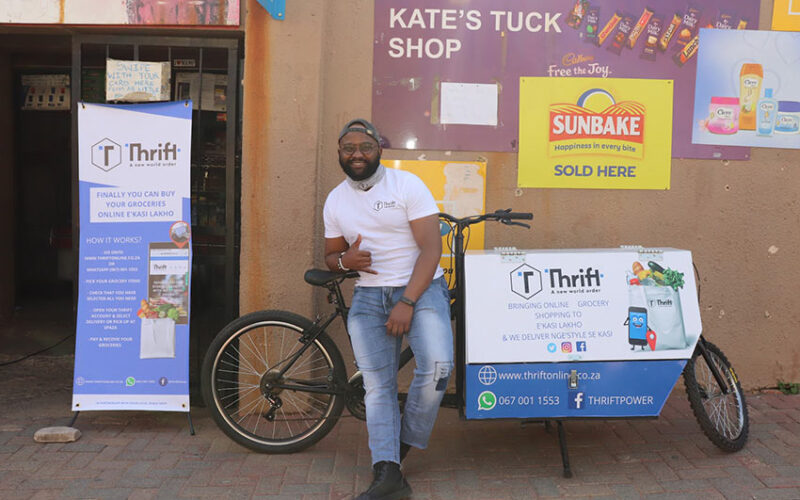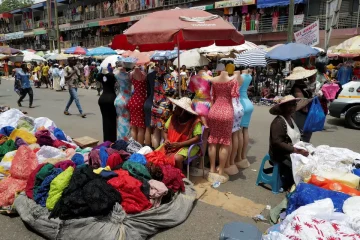TANYA McCLEAN
TAKING the traditional stokvel business model to the digital level, reducing the cost of food for township communities and creating jobs – that’s the win-win situation being implemented by owner of Thrift Online, Thabiso Mongane from Soweto.
Mongane, who has a background in corporate banking, said that Thrift Online is a social commercial platform with the original goal being to target students and their grocery needs. The concept was simple, aggregate the student grocery demand and co-ordinate individual purchases into bulk purchases, making grocery shopping far more affordable for the student market.
But then the Covid-19 pandemic hit South African shores.
“We were ready to launch at our first campus. March 21 came and everybody left campuses around the country.
“We decided to pivot and look at another environment where the buying power of the collective could be leveraged. We also wanted to include solutions for social issues,” said Mongane.
With his team, he looked at the spiralling food prices and identified price point as being one of South Africa’s biggest challenges.
“For the poor and vulnerable, particularly in the townships, the only thing they have is large numbers which they can use effectively when it comes to the cost of food,” he added.
A bold plan was hatched with aggregation and bulk buying being directed towards spaza owners who would pass on reduced prices to their customers.
Mongane and his collective believe that the biggest challenges affecting the cost of food in townships could be cracked by focusing on the distribution costs and risks, and bringing quality products closer to the township consumer. This led him to carving out a hub and spoke model that uses existing spaza shops as micro-distribution centres, where the spaza owners would play a critical role of receiving stock and re-distributing to each other. This is all made possible through Thrift’s digital stock management system.
Mongane said Thrift Online provided two channels – Whatsapp and an e-commerce platform. He also realised there was a need to ease tensions between South African and foreign spaza shop owners.
“We believe there is space for the South African and spaza foreign owners to co-exist and to all survive as businesses. To do this was the need to form networks and we did this in Soweto. There is one South African spaza shop owner and a large bread order goes to him and he distributes it to 15 other spaza shop owners, some of whom are foreign. So everyone has a place in the value chain.”
He added that they hit a brick wall with just the online offering and realised they had to have a physical presence in the township.
“There is general mistrust in the township with regard to digital platforms and the entire township economy is based on trust. It was important to understand how townships engage with markets in the retail space.
“We now have guys on bikes to deliver bread in the early morning, as well as service champions who visit spaza shop owners. It’s a new set of jobs.”
While Mongane is still looking towards the student grocery aggregation, he will continue to build the markets he has created in Soweto and Alexandra and wants to have on offer 10 staple food items for his customers. He would also prefer to ‘buy local’, such as bread baked in the township, instead of having to buy from the major food retailers, which again would again create more jobs.
“There are new ways of thinking and creating employment in the township communities and we want to be leaders in this conversation,” said Mongane.
And perhaps there is an urgent need for new thinking. In the last week of November, the Pietermaritzburg Economic Justice and Dignity group (PMBEJD) released their November 2020 Household Affordability Index, which tracks 44 basic foods being bought by low income households in townships across the country. It highlighted the national minimum wage for a general worker in November 2020 was R3 487,68, while the average cost of the Household Food Basket was R4018,22 – considerably beyond the affordability of low income families.
“The reward is creating economic opportunities that didn’t exist before. When I see a lady now being able to buy three loaves instead of two, that kind of value in being a catalyst for access to food in the township is priceless,” said Mongane.














